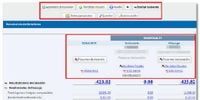The tax return campaign in Spain is officially set to begin on April 2, 2025, marking a crucial period for millions of taxpayers as they prepare to report their earnings from the previous year. This year's campaign introduces several significant changes that could impact taxpayers' financial obligations and benefits.
Taxpayers will have until June 30, 2025, to file their returns, but those who wish to set up direct debit payments must submit their declarations by June 25. With the introduction of new payment methods, including Bizum, taxpayers can now settle their dues more conveniently. This option, along with other changes, aims to simplify the tax filing process for citizens.
One of the most notable changes for this tax season is the adjustment in the income threshold that mandates filing a tax return. Taxpayers earning over 22,000 euros from a single source or 15,876 euros from multiple sources—provided that the income from the second and subsequent payers exceeds 1,500 euros annually—will be required to file. This is a slight increase from last year, which had a threshold of 15,000 euros.
Additionally, the government has announced an increase in tax reductions for income from work, raising the limit from 6,498 euros to 7,302 euros annually. This adjustment is designed to benefit lower-income earners, allowing them to pay less in taxes.
For those affected by the DANA (severe storms), any aid received will be exempt from taxation. However, it is essential to note that if the total amount of aid, including compensation from the Consortium, is less than the acquisition value of the destroyed or damaged assets, a capital loss will be reported in the IRPF. Conversely, if the aid exceeds the asset value, it may result in a capital gain, but this will not be taxed if the gain is less than the total compensation received.
Self-employed individuals impacted by DANA will also see benefits in this year's tax return. They will receive a 25% reduction in net income from modules in the IRPF, in addition to a general 5% reduction for 2024. They will also benefit from a 25% reduction in fees under the simplified VAT regime.
Another significant change this year is the reduction of the rental deduction for landlords. Previously set at 60%, the deduction has decreased to 50% for general cases. Exceptions apply in stressed residential markets, where landlords can still receive deductions of up to 90% if they reduce rent by at least 5% compared to previous contracts.
Moreover, the government has increased the percentage of tax deductions for donations made to official entities. The first 250 euros donated will receive an 80% deduction, while amounts exceeding this can receive deductions of 40% for the first two years of continued donations, increasing to 45% from the third year onward.
In a last-minute change, the government confirmed that individuals who received unemployment benefits in 2024 will not be required to file a tax return this year. This postponement will take effect next year, affecting filings due in 2026.
For the 2025 tax campaign, the Tax Agency has also added two new boxes for rectifying self-assessments, allowing taxpayers to correct any errors or omissions in previously submitted declarations. Additionally, retirees who contributed to old mutual societies can now request full refunds of pending amounts through a specific form.
The Tax Agency is paying close attention to capital gains generated from buying and selling items on digital platforms like Vinted and Wallapop. Taxpayers must report any profits made from these transactions, especially if they exceed 2,000 euros annually or involve the sale of more than 30 items.
As the tax return campaign approaches, taxpayers are encouraged to utilize the Income Simulator available on the Tax Agency's website. This tool allows individuals to enter their personal and fiscal data to estimate whether they will owe money or receive a refund, helping them plan accordingly.
From April 2, 2025, taxpayers can access their draft declarations through the Renta Web application. The process involves entering a reference number and verifying personal information before submitting the final declaration. This year, the Tax Agency will also assist taxpayers via telephone starting May 6, with in-person appointments available from June 2, all requiring prior scheduling.
In summary, the 2025 tax return campaign introduces essential changes aimed at simplifying the filing process and providing more benefits to taxpayers. With the deadline approaching, it is crucial for individuals to be aware of the new regulations and utilize the available resources to ensure compliance and optimize their tax situation.








